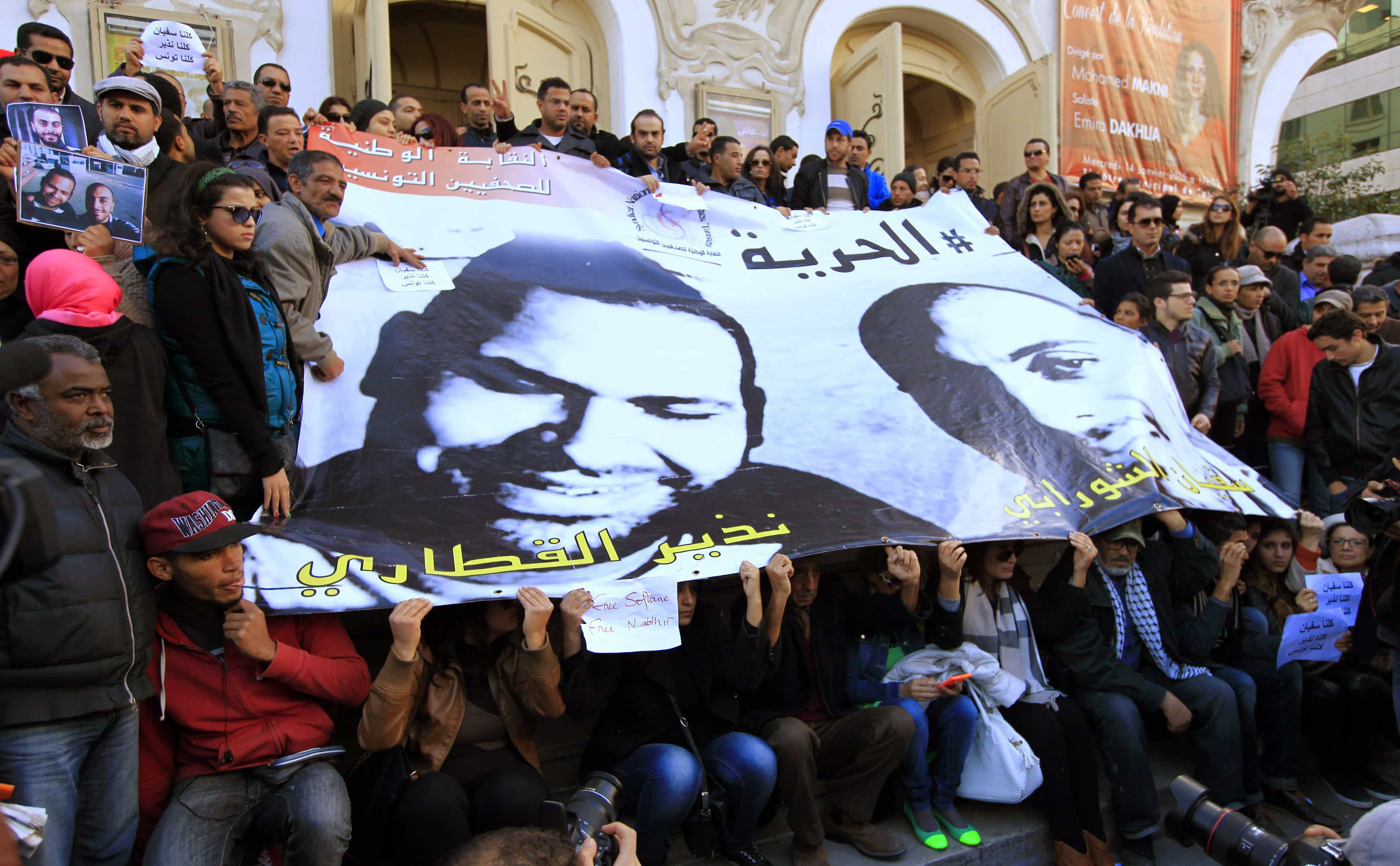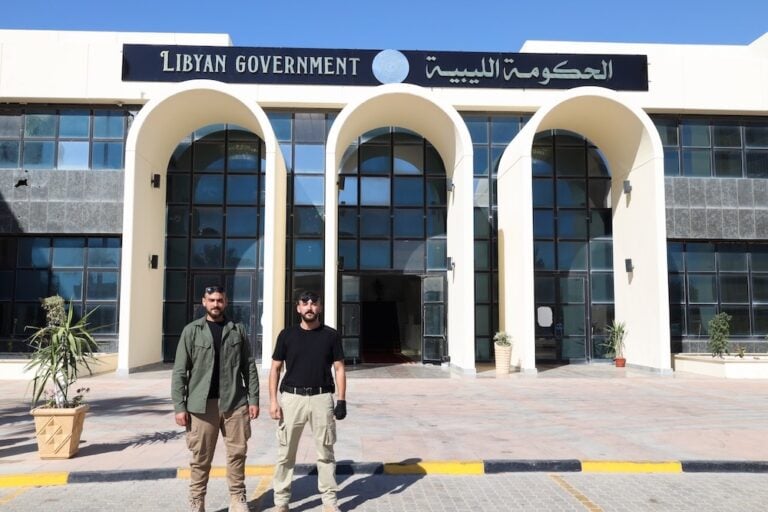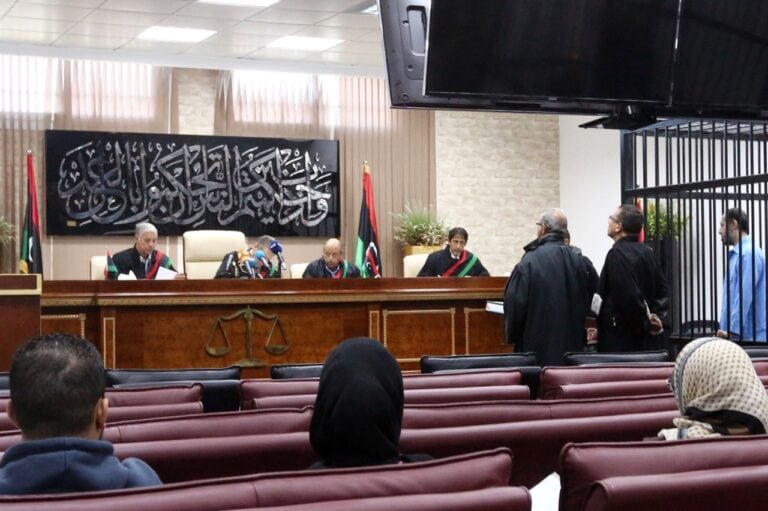Libyan President Beji Caied Essebssi agreed to a civil society proposal that the anniversary of their disappearance, 8 of September, should be celebrated in Tunisia as National Day for the Protection of Journalists.
This statement was originally published on rsf.org on 8 September 2015.
Nine human rights and media freedom groups called today for the creation of a special commission of enquiry into the disappearance of Tunisian journalists Sofiane Chourabi and Nadhir Ktari, who went missing exactly one year ago in neighbouring Libya, after the announcement by President Beji Caied Essebssi’s agreement to a civil society proposal that the anniversary of their disappearance, 8 of September, should be celebrated in Tunisia as National Day for the Protection of Journalists.
Syndicate, human rights and media freedom groups reiterated their call to the government to create a mixed commission consisting of representatives of the government, ARP (the Assembly of the Representatives of the People) and civil society to shed light on their disappearance. The ARP has already named a representative in this commission.
The human rights and media freedom groups also urged parliamentarians to organize hearings with the aim of questioning all those who have had anything to do with the case since the outset, and to make their findings public to everyone. The crucial role of the investing judge working on this case has also been highlighted.
Moreover, the group expressed its satisfaction after President Beji Caied Essebsi agreed to a civil society proposal that the 8 the of September should be celebrated as a National Day for the Protection of Journalists.
Reporter Sofiane Chourabi and cameraman Nadhir Ktari went to Libya to do a report for “Dossiyates,” a programme on Tunisia’s First TV station. They were arrested in the Libyan city of Ajdabiya on 3 September 2014 and were released three days later. On the evening of their release, Chourabi tweeted: “I thank all of you once again. I will talk about the details when I return to Tunisia. In the meantime, I plan to continue my reporting mission.”
He and Ktari went missing two days after their release. Since then, there has been no sign of life and no verified claim that they were being held hostage. The security chaos reigning in Libya since July 2014 has made it much harder to investigate their disappearance. The absence of clear government representatives and the existence of many rival groups have resulted in rumours and statements that have never been verified. One of the most disturbing of these was a message announcing the execution of the two journalists that was posted on 8 January on a website apparently linked to Islamic State’s Libyan wing.
A member of the Tobruk-based government’s justice ministry announced on 29 April that, on the basis of the confession of five recently detained suspects, the ministry believed that armed groups had murdered seven journalists, including Chourabi and Ktari. However, it has not been possible to verify this claim and a Tunisian investigating judge’s visit to Libya last may achieved nothing.
A coalition of national and international human rights and media freedom groups was then formed in Tunisia to press the Tunisian authorities and the Libyan transitional process’s participants to shed light on the disappearance of the two Tunisian journalists.
Signatories:
· National Tunisian Journalists’ Syndicate
· Tunisian League for Human Rights
· Tunis Centre for Press Freedom
· General Syndicate for Information (part of the Tunisian General Labour Union – UGTT)
· Vigilance for Democracy and Civil Society
· Reporters Without Borders
· Article 19
· Euro-Mediterranean Network for Human Rights
· World Association of Community Radio Broadcasters (AMARC)



